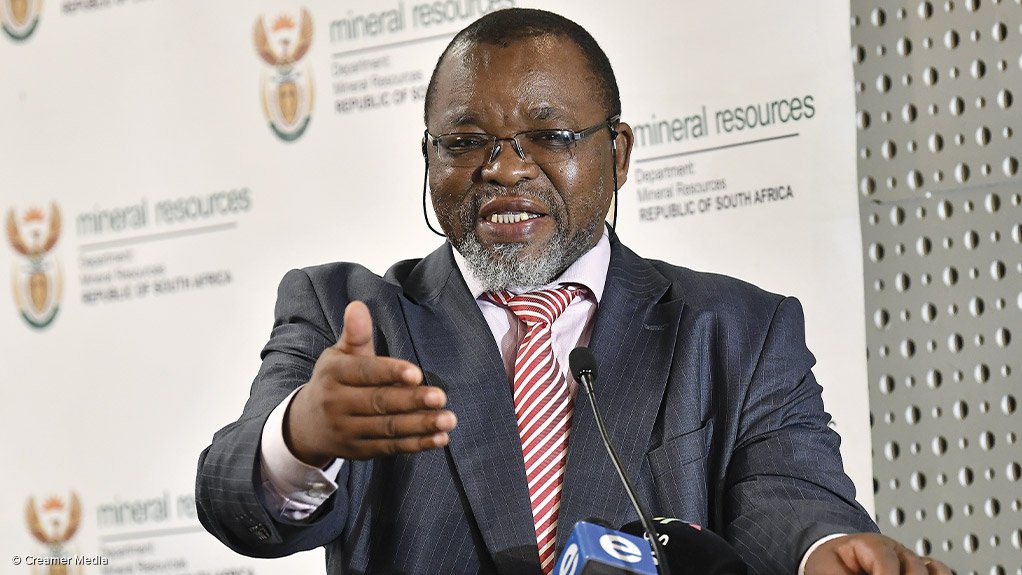Mineral Resources and Energy Minister Gwede Mantashe has pulled back from his statement that the release of the revised Integrated Resource Plan, which he has dubbed IRP 2023, is imminent, revealing during his Budget Vote on Tuesday that the draft will be presented to Cabinet only in the second quarter of this financial year.
Government’s financial year runs from the start of April to the end of March, implying that the presentation to Cabinet will be made between July and September.
In an earlier briefing of lawmakers on May 9, Mantashe acknowledged that government had failed to meet its initial deadline of March for the release of the draft IRP, but asserted that “it is going to happen now”.
Speaking in Parliament on May 16 against the backdrop of intense loadshedding, Mantashe again described the IRP as South Africa’s blueprint policy for electricity generation and confirmed that it was currently under review.
The department confirmed with Engineering News that the draft IRP would go through the government’s economic cluster for inputs before it progressed to Cabinet.
"Once the Cabinet approves the revised IRP, the normal public policy development process will be undertaken.
"The process entails consultations with the mining and energy sector, interested and affected parties and South Africans at large.
"It is anticipated that the final revised IRP will be approved and Gazetted for implementation during the course of the 2023/24 financial year."
Mantashe added that, while the review was under way, government would continue to procure additional electricity informed by the existing policy.
He announced that the following procurement programmes would be launched during the current financial year:
- Bid windows seven (BW 7) and eight (BW 8) of the renewable procurement programme, at 5 000 MW apiece, with a request for proposals (RFP) for BW 7 to be issued in the second quarter and for BW 8 in the fourth quarter;
- Further RFPs for a combined 1 230 MW of battery storage to be issued in the second and fourth quarters;
- An RFP for 3 000 MW of gas-to-power in the second quarter; and
- An RFP for the procurement of 2 500 MW of nuclear energy in the fourth quarter.
In her address, Deputy Minister Dr Nobuhle Nkabane said the department had recently drafted a framework that would “ensure that the procurement of the 2 500 MW of nuclear energy is completed by the year 2024”.
While the proposed nuclear procurement was not surprising given Mantashe’s vocal support for the technology, the firm RFP deadline implied that government was likely to include a specific allocation for nuclear in IRP 2023.
The IRP 2019 does not include an allocation for nuclear besides 1 860 MW for Koeberg’s life extension and states only that preparations for a nuclear build programme to the extent of 2 500 MW should commence “at a pace and scale that the country can afford”.
The department tells Engineering News that nuclear is included as one of the technologies in the IRP 2019 that the technical model should consider.
It also claims that the policy proposes that the nuclear power programme be implemented at a modular scale, as opposed to a fleet approach and that technological developments in the nuclear space should be taken into account.
Several commentators have already raised concerns about the potential content of the draft IRP 2023 in light of Mantashe’s ongoing push for additional nuclear, gas and coal in the future plan, despite several studies showing that the least-cost electricity mix would be based on solar and wind, supported by flexible generators and storage.
Nevertheless, the Democratic Alliance’s Kevin Mileham lambasted the delay in the publication of the IRP, which he said formed part of a pattern of under delivery by Mantashe when measured against the performance agreement targets that had been set for him in the area of energy, and which the Minister had signed.
These targets ranged from finalising a just energy transition framework, facilitating the procurement of new generation and supporting a recovery in Eskom’s energy availability factor, to ensuring Eskom’s unbundling and the security of supply of liquid fuels.
“The reality is he [Mantashe] is failing on just about every single measure,” Mileham noted.
EMAIL THIS ARTICLE SAVE THIS ARTICLE ARTICLE ENQUIRY
To subscribe email subscriptions@creamermedia.co.za or click here
To advertise email advertising@creamermedia.co.za or click here











